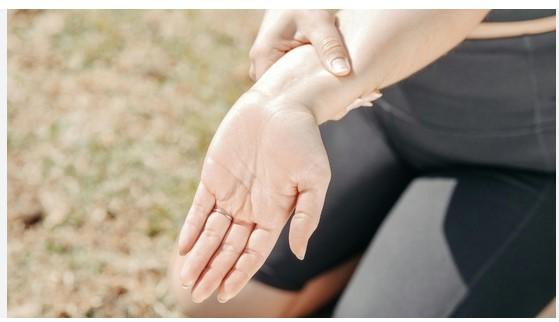Individuals, even in their 30s, have joint pain, and it is an unusual condition to have these issues at a young age. In the current scenario, these occur due to busy schedules, a sedentary or sluggish lifestyle, and a lack of physical activity. This is a condition called Joint aging, which are natural, progressive changes that take place in the joints as part of the overall ageing process, which leads to stiffness, pain, and reduced range of motion.
This condition is an ordinary aspect of life, but having this at a young age can lead to the inability to engage in physical activities, joint discomfort, difficulty in doing simple activities such as climbing stairs, and other long-term consequences.According to Dr Paneendra S, MBBS, MS - Orthopaedic Surgeon, Apollo Spectra Hospital, Bangalore, joints can also age because of certain other factors, such as injuries, obesity, poor posture, repetitive strain, etc. Nutritional deficiencies and autoimmune diseases also contribute to the condition. Nutritional deficiency, such as following an eating cycle that is low in calcium, Vitamin D, and required fatty acids, can weaken bone health. Intense sports activities or any accidents can lead to diseases like Arthritis, which is the inflammation of one or more joints.
Osteoarthritis is the most common type of arthritis diagnosed due to joint ageing, which is the breaking of cartilage in the joints due to wear and tear over time. Early joint ageing can also lead to long-term conditions like chronic inflammation. Unlike noticeable normal ageing symptoms like grey hair or wrinkled skin, joint ageing will not be noticeable unless the symptoms become quite severe.
Certain early signs of joint ageing shouldn’t be avoided, such as frequent joint stiffness, intense pain following any physical activity, inflammation in knees, fingers, or wrists, and any sounds while doing any ordinary activities like walking. Reduced physical activity due to early joint pain can also cause muscle loss, weight gain, and muscle loss, which again weakens joint health. These complications can also lead to mental conditions such as anxiety and depression, and patients will have to rely on medications daily and, in the worst cases, will have to undergo replacement surgeries.
These conditions can be avoided by following certain steps. Incorporating physical activities such as walking, yoga, cycling, or swimming can improve strength in your muscles. Start with a short-term workout plan to manage your weight, as being overweight or obese can put excess pressure on your joints.
Following a balanced diet, rich in antioxidants and vitamins D and C, can support cartilage and improve your bone health. Additionally, maintaining a proper posture can help if you are doing a deskbound job for longer hours. If a person is feeling older than their actual age, it is crucial to pay attention to their joints. Immediate medical treatment can preserve your joints and reduce pain, and a person can stay physically active for a longer period.




